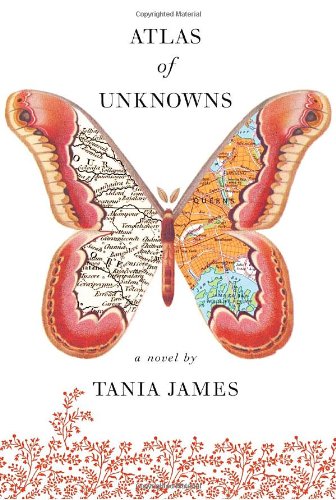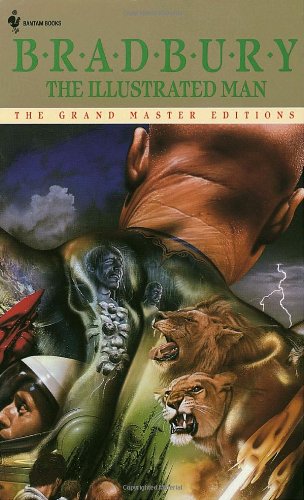 Tania James is a graduate of Columbia’s School of the Arts and the author of the novel, Atlas of Unknowns (Knopf), which The San Francisco Chronicle calls “dazzling, original, and deeply absorbing…one of the most exciting debut novels since Zadie Smith’s White Teeth.” Junot Diaz called the book “an astonishment of a debut, so radiant with life, with love, with good old human struggle that I had trouble detaching myself from its pages.” Atlas of Unknowns was selected as a Barnes & Noble Discover Great New Writers pick for spring and will be published in eight additional countries. Tania lives in New York City. For more info on the book, visit www.taniajames.com.
Tania James is a graduate of Columbia’s School of the Arts and the author of the novel, Atlas of Unknowns (Knopf), which The San Francisco Chronicle calls “dazzling, original, and deeply absorbing…one of the most exciting debut novels since Zadie Smith’s White Teeth.” Junot Diaz called the book “an astonishment of a debut, so radiant with life, with love, with good old human struggle that I had trouble detaching myself from its pages.” Atlas of Unknowns was selected as a Barnes & Noble Discover Great New Writers pick for spring and will be published in eight additional countries. Tania lives in New York City. For more info on the book, visit www.taniajames.com.
Whan that Aprille with his shoures sote
The droghte of Marche hath perced to the rote…
These lines were once a plague to me, as they were for most of my middle school peers who, in English class, were forced to memorize the first eighteen lines of Chaucer’s Canterbury Tales. Back then, it seemed a senseless torture of syllables as each student stood and stumbled their way through the verses, in Irish accents derived from a Lucky Charms commercial. Nevertheless, I memorized, because memorization was central to my schooling, and therefore, my life, in a way that it has ceased to be.
It seems that these verses continue to torture students today. I found a recitation of the introduction on YouTube, and under the comments section, ejvc2003 wrote: “These some 18 lines are seriously cramping my style. Man, memorization blows.” I didn’t always think that memorization blew. In middle and high school, I memorized entire short stories and could recite them aloud without a single um. I would like to say that this was all due to a pure love for literature, but no, I memorized because I was on the Speech & Debate Team. My category was called Dramatic Interpretation, which required me to read an entire story aloud, or an abridged version, steering clear of the melodrama that characterized the category of Storytelling, wherein competitors resorted to crazy voices, wild gesticulation, and in the case of one memorable thespian: tears. To me, the drama resided in the writing, and I took very seriously the project of selecting a story to memorize, because I believed that the story would be remain in the warehouse of my brain forever.
The process of finding the right story took me all around the library, through anthologies and collections, using no better gauge than the first few paragraphs of the story. I wanted to choose “Bullet in the Brain” by Tobias Wolff, because it seemed to me that there existed no better closing paragraph than that which began: “The bullet is already in the brain; it won’t be outrun forever, or charmed to a halt. In the end it will do its work and leave the troubled skull behind, dragging its comet’s tail of memory and hope and talent and love into the marble hall of commerce.” Here, it was the voice that appealed to me, its calm inventory of the remembered and the unremembered, its accelerations and decelerations, its halting authority, its matter-of-fact rendering of the bullet’s path. But “Bullet in the Brain” was too structurally complicated, in its second half, for Speech & Debate.
 I still chose darker stories than most, with troubled narrators, like “The Cask of Amontillado” by Poe, or “The Boogeyman” by Stephen King. I’m not sure what the judges thought of me – a seemingly quiet, shy Indian girl, launching into the speech of a sociopath or a baby-killer: “We had passed through long walls of piled skeletons, with casks and puncheons intermingling, into the inmost recesses of the catacombs.” It was almost as thrilling as being newly fluent in another language. Recitation also gave me an early appreciation for the value of reading aloud one’s work and listening for the acoustics and rhythms of language. The story I most enjoyed reciting was “The Veldt” by Ray Bradbury, which I had discovered in a laminated library book called The Illustrated Man. It was a story that had possessed me as I read it for the first time, and later, as I spoke it straight from memory, I felt that I somehow possessed it.
I still chose darker stories than most, with troubled narrators, like “The Cask of Amontillado” by Poe, or “The Boogeyman” by Stephen King. I’m not sure what the judges thought of me – a seemingly quiet, shy Indian girl, launching into the speech of a sociopath or a baby-killer: “We had passed through long walls of piled skeletons, with casks and puncheons intermingling, into the inmost recesses of the catacombs.” It was almost as thrilling as being newly fluent in another language. Recitation also gave me an early appreciation for the value of reading aloud one’s work and listening for the acoustics and rhythms of language. The story I most enjoyed reciting was “The Veldt” by Ray Bradbury, which I had discovered in a laminated library book called The Illustrated Man. It was a story that had possessed me as I read it for the first time, and later, as I spoke it straight from memory, I felt that I somehow possessed it.
As I moved on through high school and college, my studies demanded memorization of a fleeting kind, and it seems that my reservoirs of memory have grown shallower each year, so much so that I can’t even recall the phone numbers of my best friends each time I misplace my cell phone. In graduate school, I took a poetry survey class with Alice Quinn, the former poetry editor at The New Yorker and at the end of the semester, she had each of us memorize three poems which we were to recite in her office. This took me an extraordinary amount of time and effort, but not so for Alice, who, if I remember correctly, memorized a new poem each day. I wish I could still remember Auden’s “Lay Your Sleeping Head My Love” or “The Veldt” or the intro to The Canterbury Tales. I’m reminded of a scene from Sylvia, a movie I didn’t much care for, when Sylvia (Gwyneth Paltrow) stands in a moving canoe and recites “The Wife of Bath” to a herd of cows on the riverbank. I have to say that I actually appreciated Paltrow’s Middle English, with its soft g’s and rolling r’s, its lilt and swing. I found myself muttering the word marriage (ma-ree-AZH), rolling the syllables around my mouth, as newly infatuated by language as Anders, who, in the final moments of “Bullet in the Brain,” fails to remember “the hundreds of poems he had committed to memory in his youth so he could give himself the shivers at will – not ‘Silent, upon a peak in Darien,’ or ‘my God, I heard this day,’ or ‘All my pretty ones? Did you say all? O hell-kite! All!'”




